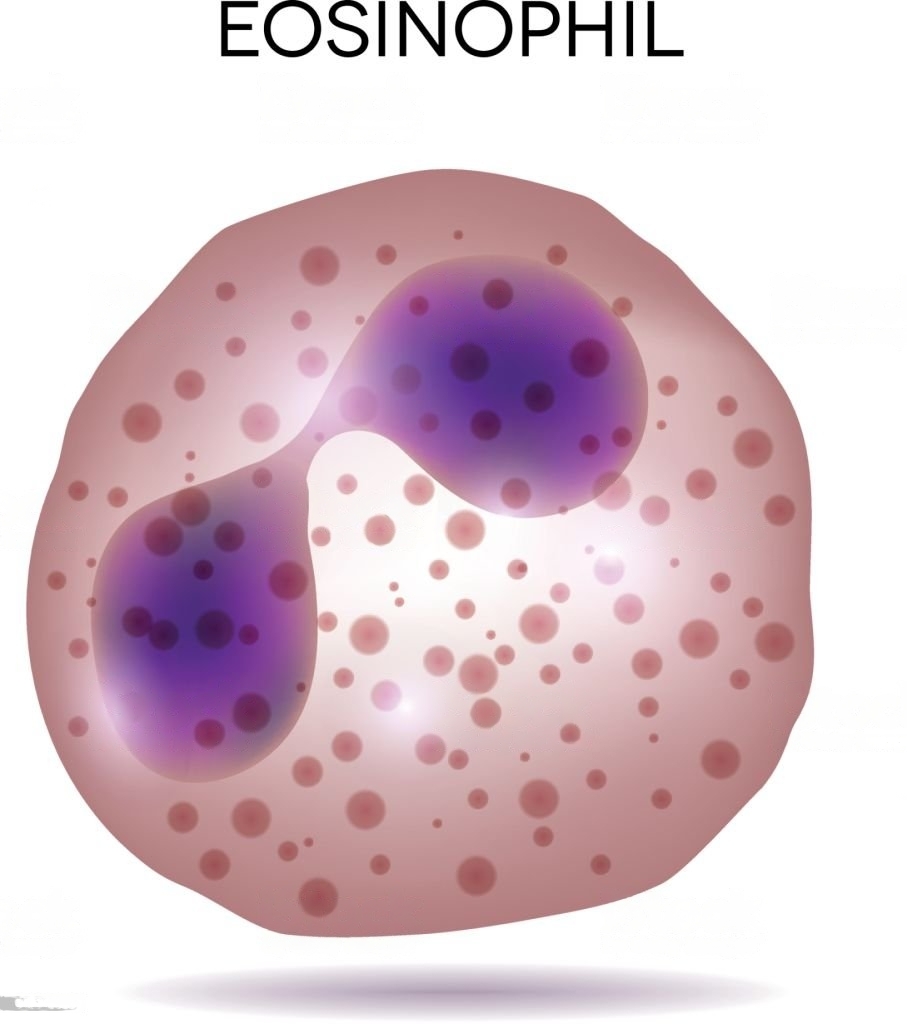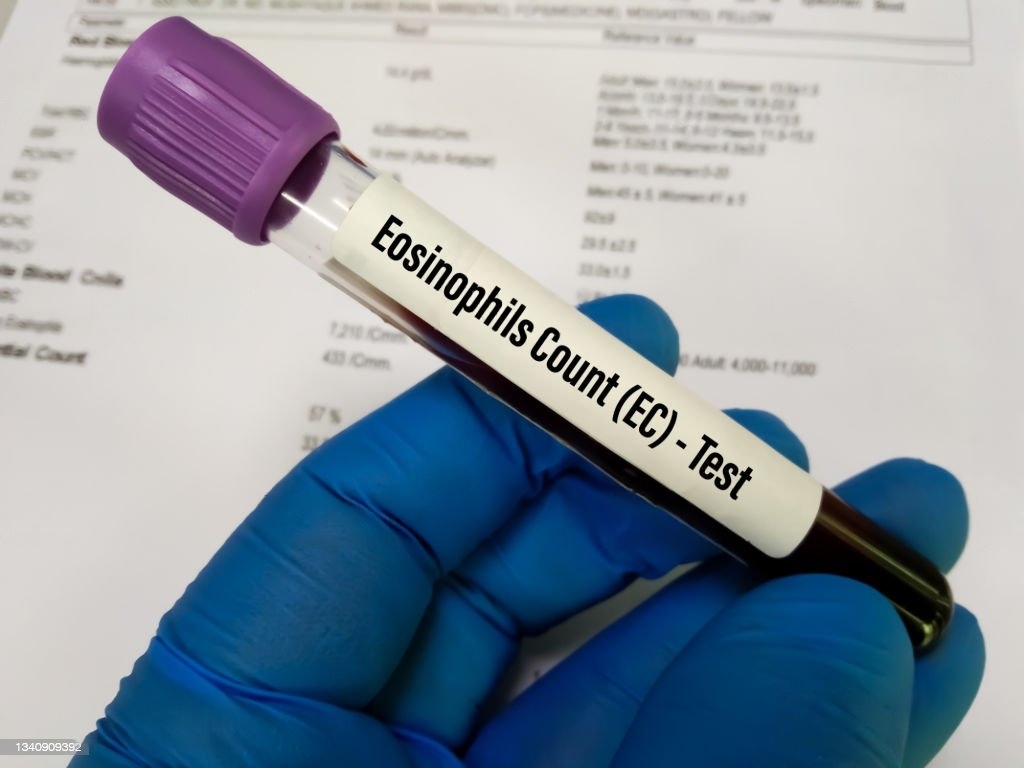Eosinophils are a type of white blood cell that plays a significant role in our immune system. These cells help the body fight off infections and respond to allergens. Eosinophil levels are routinely measured through a complete blood count (CBC) test, which provides crucial insights into an individual’s overall health. In some cases, elevated eosinophil levels can raise concerns about potential health conditions, including cancer. In this article, we will explore the relationship between eosinophil levels and cancer risk, while also shedding light on other factors that can influence eosinophil counts.

Table of Contents
I. Introduction
In the realm of health diagnostics, eosinophils have garnered attention due to their vital role in maintaining our well-being. These white blood cells are known for their involvement in immune responses and inflammatory reactions. While elevated eosinophil levels are not synonymous with cancer, they can serve as an indicator of underlying health issues, prompting further investigation.
II. Understanding Eosinophils
Eosinophils are specialized white blood cells that operate as part of the immune system’s defense mechanisms. They are primarily responsible for combating parasitic infections and participating in allergic reactions. In a standard complete blood count (CBC) test, eosinophil levels are usually expressed as a percentage of the total white blood cell count. Normal levels typically range between 0% to 6%, though these values can vary slightly depending on the laboratory.
III. Eosinophils and Health Conditions
Elevated eosinophil levels can be linked to various health conditions beyond cancer. Allergies, asthma, and certain infections can trigger an increase in eosinophil counts. It’s important to note that while these higher levels might raise concerns, they are not definitive confirmation of cancer. Instead, they signify the need for further investigation and evaluation.
IV. Eosinophil Levels and Cancer
Certain types of cancer have been associated with elevated eosinophil levels. These include specific forms of leukemia, lymphomas, and gastrointestinal cancers. However, it’s crucial to understand that eosinophil counts alone are not enough to diagnose cancer conclusively. They serve as potential indicators that must be evaluated alongside other clinical information and tests.
V. Factors Influencing Eosinophil Levels
While cancer is one factor that can lead to elevated eosinophil counts, it’s not the only one. Eosinophil levels can also be influenced by medications, autoimmune diseases, and other non-cancerous conditions. This highlights the complexity of interpreting eosinophil counts and emphasizes the need for a comprehensive medical assessment.
VI. Diagnostic Process
Routine blood tests, including CBCs, are instrumental in identifying elevated eosinophil levels. However, a single blood test is rarely sufficient to diagnose cancer. If eosinophil levels are found to be elevated, additional diagnostic tests such as biopsies, imaging scans, and specialized blood tests might be recommended to confirm the presence of cancer.

VII. Importance of Consultation
Should an individual’s eosinophil levels be higher than the normal range, seeking medical advice is crucial. Self-diagnosis based solely on blood test results is ill-advised. A qualified medical professional can analyze the results in the context of the individual’s overall health, medical history, and other relevant factors.
VIII. Seeking Medical Advice
Readers are strongly encouraged to reach out to a healthcare provider if they have concerns about their eosinophil levels. While it’s natural to feel worried, only a medical expert can provide accurate interpretations and guide individuals toward appropriate next steps. Open communication and regular check-ups play an integral role in maintaining good health.
IX. Conclusion
In summary, understanding the significance of elevated eosinophil levels is essential for proactive health management. While these levels can be a potential indicator of cancer, they are not a definitive diagnosis on their own. Various factors, including allergies, infections, and non-cancerous conditions, can influence eosinophil counts. Consulting a healthcare professional and undergoing further diagnostic evaluations are critical steps to accurately assess one’s health.
Remember, prioritizing regular health check-ups and fostering a collaborative relationship with medical experts contribute to overall well-being. Elevated eosinophil levels are a signal that prompts careful consideration, but a comprehensive evaluation is needed for a conclusive assessment.
FAQs
1. Can elevated eosinophil levels directly confirm the presence of cancer?
Elevated eosinophil levels can suggest the possibility of cancer, but a definitive diagnosis requires additional tests and medical evaluation.
2. Are eosinophils only associated with cancer?
No, eosinophils can be elevated due to various factors, including allergies, infections, and autoimmune conditions.
3. Should I be concerned if my eosinophil levels are slightly above the normal range?
Slight variations in eosinophil levels can be influenced by multiple factors. It is advised to seek the advice of a healthcare professional for a thorough evaluation.
4. What further tests might be recommended if my eosinophil levels are high?
Depending on your medical history and overall health, your doctor might recommend biopsies, imaging scans, and other specialized tests to determine the cause of elevated eosinophil levels.
5. How often should I have my eosinophil levels checked?
The frequency of blood tests, including CBCs, can vary based on your health and medical history. Regular check-ups with your healthcare provider can help determine the appropriate testing schedule.
